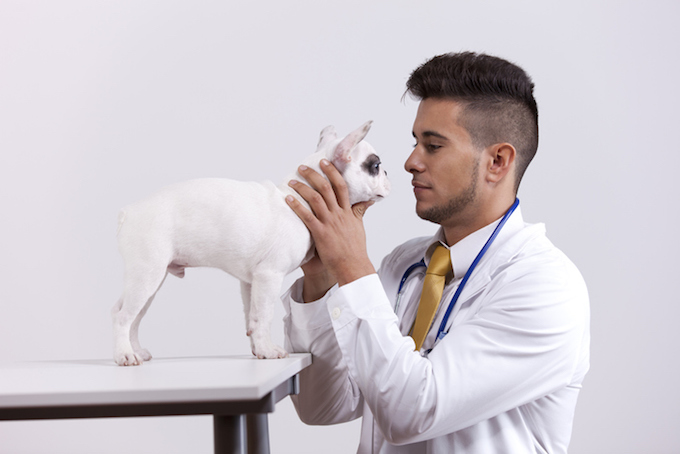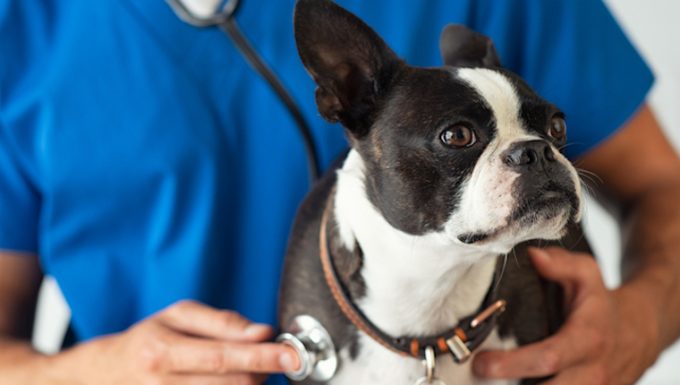Hypoandrogenism in dogs is a condition that is caused by a lack of hormones, such as testosterone. Unfortunately, Boston Terriers are predisposed to it.
The condition can affect male and female dogs.
Technically, the condition is also known as masculinizing sex hormone deficiency in dogs.
However, the condition is different to hyperandrogenism in dogs. That condition is caused by elevated sex hormones.
If you see the signs of the condition in your dog, get to a veterinarian for a proper diagnosis and treatment.
Here’s what you should know about the symptoms, causes, and treatments for the condition.
Symptoms of Hypoandrogenism in Dogs
The condition produces a range of symptoms. For example, some common symptoms are:
- Low sex drive
- Infertility
- Coat changing color
- Dull coat
- Underdeveloped testes
- Unable to cycle
- Not raising a leg to pee
Causes of the Condition in Dogs

The cause of the condition can be a range of things. For example, some common causes are:
- Castration
- Steroids
- Testicular degeneration
- Pituitary issues
Additionally, Boston Terriers are predisposed to the condition.
Treatments for the Condition in Dogs
Firstly, your vet will ask about your dog’s symptoms. Secondly, your vet will ask about your dog’s full medical history.
Thirdly, your vet will carry out a full physical examination of your dog. Also, your dog’s blood and urine will be tested. Additionally, your dog will undergo a skin biopsy if the condition causes hair loss.
Generally, your vet will treat the underlying cause. Additionally, your vet can recommend hormone replacement therapy.
Finally, while your dog recovers at home, provide them with a quiet and calm environment. Also, keep up regular visits with your vet. This is so your vet can monitor your dog’s recovery.
Have you ever cared for a dog who suffered from this condition? How did your vet help your dog recover? Let us know in the comments section below.









